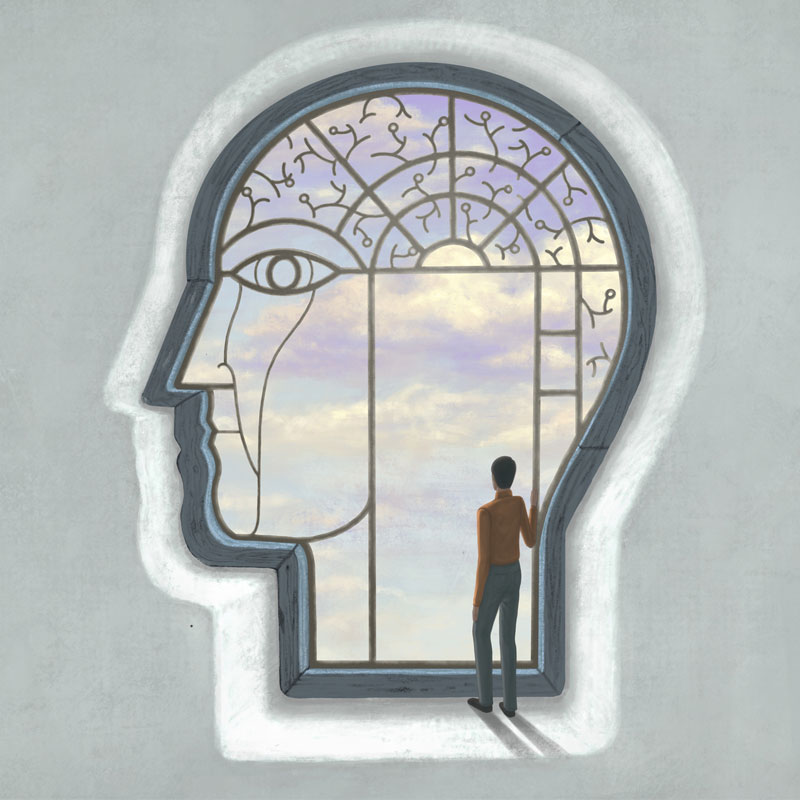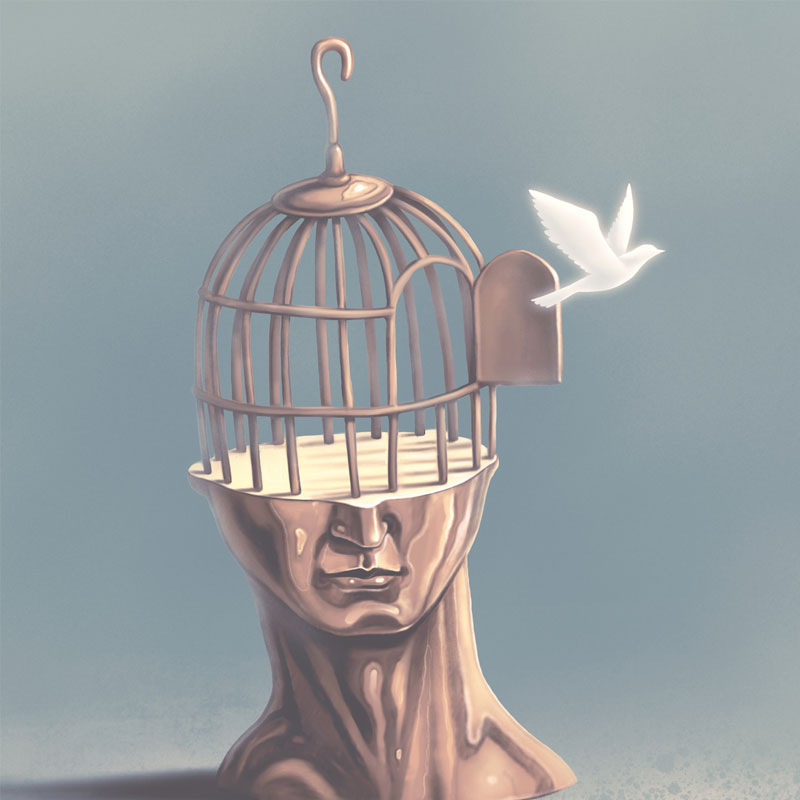 Photo from Getty Images
Photo from Getty Images
Originally Posted On: https://lilacrecoverycenter.com/blog/cbt-addiction-recovery/
Many rely on CBT or Cognitive Behavioral Therapy for addiction recovery and treatment. When you’re dealing with a substance use disorder, there are almost always complex and interacting issues. In fact, one problem is rarely to blame for the onset of SUD. Unfortunately, it can be difficult to identify and address every cause, whether your substance use has been impacted by genetics, life difficulties, unsafe or unsteady environments, brain chemistry, or something else.
However, to find lasting recovery from SUD, it is crucial to address what contributes to your behavior. Cognitive behavioral therapy is a well-established method for identifying problematic behaviors, assessing the reasoning behind them, and working to make changes. Learn more about how cognitive behavioral therapy is used in SUD treatment and how it could benefit you.
What Is Cognitive Behavioral Therapy?
Cognitive behavioral therapy (CBT) is a term for a type of talk therapy and is a psychotherapy treatment modality based on the principles of behaviorism and ideas surrounding cognition. Behaviorism examines the actions of a person, while cognition examines a person’s perceptions. Together, these concepts focus on how humans interact with and view the world around them, how those thought processes shape and change behavior, and behavior can be changed.
CBT, as a substance use disorder treatment, works towards changing the thinking that leads to addictive behaviors in order to modify or eliminate those behaviors. CBT is the preferred method for treating alcohol use disorder and other substance use disorders. It focuses on finding healthy solutions for the thought processes that precede a behavior rather than finding a cause for the behavior. CBT is most effective when it is combined with other therapy methods, mindfulness practices, wellness, and potentially medication.
The History of Cognitive Behavioral Therapy

Photo from Getty Images
Cognitive behavioral therapy began in the 1960s as a result of work by psychoanalysts Aaron Beck and Albert Ellis. Beck had begun noticing Photo from Getty Images Photo from Getty Images patterns of irrational thinking in patients with depression and wondered if that thinking was connected to depressive behavior. Beck was one of the first to connect cognition and psychological disorders.
This conjecture was the beginning of cognitive theory, which became a fundamental part of CBT. Ellis outlined a type of therapy based on cognition and emotions, which is now Rational Emotive Behavioral Therapy. CBT is based on the fundamental aspects of Rational Emotive Behavioral Theory. Combining the two perspectives of cognition and behaviorism is what led to the founding of CBT. Eventually, experts began to use cognitive-behavioral therapy for substance use disorders.
How Is Cognitive Behavioral Therapy for Addiction Applied?
Generally, cognitive behavioral therapy occurs via one-on-one sessions with a certified therapist or counselor, but it can take the form of several group therapy sessions. The professional therapist leads the therapy sessions, providing structure and teaching coping strategies and skills. The therapist will look for how a person’s thoughts and beliefs about the world affect their substance use-disordered behaviors.
CBT is meant to help the patient become aware of the negative or false emotions and thought processes they have been experiencing. With this awareness, the patient can process thoughts and emotions healthily and effectively. CBT often helps patients maintain long-term recovery because instead of learning to avoid stressful or triggering situations that could lead to substance use, the patient learns to properly deal with and process those stressful situations. CBT strategies are especially useful for those with SUD because it’s not always possible to avoid triggers.
 Photo from Getty Images
Photo from Getty Images
A CBT therapist focuses on perceptions, emotions, and thoughts and how those impact actions. Understanding the negative effects of certain thought patterns that fuel a substance use disorder and realizing that the thoughts are irrational are essential components of cognitive-behavioral treatment therapies.
For example, people with substance use disorder are often very aware of the health and safety risks of their behavior, yet they still continue. When a person regrets their behavior and knows on the surface that the behavior is wrong but still can’t avoid acting on it, CBT can help. Cognitive behavioral therapy for addiction can help a person understand why they’re behaving this way, the disordered thinking that accompanies the behavior and make changes.
“CBT allows you to learn new skills and techniques to cope with addictive behavior and substance use and apply them in the future, long after treatment.”
Fundamental Components of CBT
CBT combines cognitive therapy and behavioral therapy.
Cognitive psychology and behaviorism both contribute to the three main ideas of CBT:
- Cognition and thoughts affect a person’s emotions, and this affects behavior
- Cognitive thoughts and emotions can be surveyed and changed
- Behavior changes can occur by changing cognitive thoughts and emotions
Behavioral therapy focuses on how human behavior is learned and, therefore, can be unlearned and replaced with new behavior. It attempts to treat the root cause of addiction. Cognitive therapy helps patients gain control over their thoughts and emotions as a means to change behavior. By addressing a person’s false or distorted perceptions, they can create more realistic perceptions and, in turn, affect behavior. Cognitive behavioral therapy for addiction helps patients learn to deal with triggers for substance use with healthier coping strategies.
 Photo from Getty Images
Photo from Getty Images
Implementing CBT
One reason cognitive behavioral therapy is so useful for SUD treatment is that you can begin using the strategies immediately and continue using them after treatment has ended.
When you begin receiving treatment for a substance use disorder, a CBT therapist will ask numerous questions, often about family, work, substance use, internal and external triggers, social life, past treatment, and what you want to gain from therapy. A CBT therapist will discuss other treatment options if cognitive behavioral therapy is not the best option for your individual circumstances.
If you and your therapist agree that CBT is a good option for treatment, the therapist will determine the major factors contributing to your substance use disorder. Though the root causes of substance use are not what CBT seeks to solve, the information is still valuable for deconstructing negative thought patterns. As a result, it’s common for a therapist to ask you to journal thoughts, emotions, and actions between sessions.
Though every person is going to need different techniques for CBT treatment, here are some common CBT treatments that are common for substance use disorders:
Thought Exercises
Thought exercises require you to look at a situation or circumstance and find ways to look at it objectively or from many perspectives. This is meant to help you determine if the thoughts you’re having are true or imagined and causing an unhealthy coping response.
Journaling
Recording your negative or adverse thoughts and emotions can help you get a more nuanced view of your thoughts. When you write those thoughts down and then record the positive thoughts you replaced them with, you have physical proof of how your thoughts became more healthy over time. Journaling is often done outside therapy between sessions.
Cognitive Restructuring
Instead of letting your thoughts go to the worst-case scenario or catastrophizing, a cognitive behavioral therapist helps you rework those thoughts to be more accurate and helpful.
Relaxing Techniques
What this looks like will be unique to you. Relaxing may mean yoga, breathing exercises, listening to music or podcasts, doing art, gardening, taking a bath, or going for a walk. These are good coping techniques to utilize when you experience a trigger or craving. Keep in mind that it can be helpful to develop techniques that can be done anywhere in addition to more involved techniques. This way, you can respond in a healthy way no matter where you are.
Guided Discovery
This CBT technique requires a therapist to gather information about your point of view, then challenge your perceptions. Guided discovery is meant to help you consider new perspectives.
Cognitive behavior therapy and the associated treatments can be completed during one-on-one sessions. These principles are also applied during group therapy when all involved are experiencing similar substance use disordered behavior.
Cognitive Behavioral Therapy as a Treatment
Experts often recommend cognitive behavioral therapy for drug addiction, other substance use, and other addictions because these disorders almost always involve negative behaviors that can be cataloged and changed. Simply put, CBT is very effective for substance use disorders. When used to treat individuals with a substance use disorder, CBT can help manage urges and cravings for the substance by challenging the thought processes that lead the person to believe they need the substance. By breaking this cycle, people with substance use disorder can alter their behavior and find lasting recovery.
CBT is also useful for other mental health disorders, including obsessive-compulsive disorder, anxiety, eating disorders, sleeping disorders, schizophrenia, depression, bipolar disorder, and intense phobias. We’ll examine the benefits of CBT for both SUD and co-occurring disorders.
Benefits of Cognitive Behavioral Therapy for Addiction Recovery
CBT is a highly effective treatment for use in substance abuse disorder recovery and is recognized as such by the National Institute on Drug Abuse (NIDA). NIDA points out that it is very common for people with SUD to struggle with negative or distorted thoughts. Failing to recognize those harmful patterns of thought and acting on them can create an unhealthy cycle. CBT is effective because it can help people with substance use disorder not only recognize but change those thought processes and the behaviors that result from them.
In addition, cognitive behavioral therapy is a structured therapy with clear motivations and goals, which benefits both patients and therapists. This structure and organization lead to many other benefits for people with SUD:
- The therapy is individualized to the patient and works in multiple settings.
- Patients are able to notice and modify distorted thought processes
- Patients can discover the triggers they have for a certain behavior, both external and internal.
- Strategies and skills learned in therapy are able to be used throughout the patient’s life.
- Patients are able to learn coping skills, critical thinking, and communication, as well as address fears and build confidence.
- CBT establishes a healthy setting where patients can develop strong relationships and determine their own goals and path for treatment.
 Photo from Getty Images
Photo from Getty Images
As mentioned, cognitive behavioral therapy is more successful when it’s combined with other evidence-based treatments. Because CBT is a problem-solving-oriented method of therapy, a person can work to overcome problems and stressful situations before they occur. When combined with mindfulness practices, medication-assisted treatment, and more, patients can address multiple aspects of their substance use.
Cognitive Behavioral Therapy and Co-Occurring Disorders
 Photo from Getty Images
Photo from Getty Images
Many people who seek treatment for substance use disorders also have other mental health disorders, including mood disorders, anxiety, PTSD, and schizophrenia. These co-occurring disorders can exacerbate one another in many ways. For example, substance use may be a way of coping with mental health disorders. Substance use can also lead to depression or increase anxiety as people try to stop this destructive behavior and cannot. Unfortunately, this can be the beginning of a terrible cycle.
Treatment for only substance use disorder rather than all co-occurring disorders often fails in the long term. For example, if a patient receives treatment for dependence on a substance but does not address a co-existing mental health disorder, they are more likely to succumb to triggers, reason to develop relapse prevention strategies. Both disorders must be addressed to treat how they interact and affect each other. Cognitive behavioral therapy is clinically proven effective at treating depression and other mental health disorders that occur alongside SUD.
Cognitive Behavioral Therapy for Addiction
If you or someone you love is struggling with a substance use disorder, it is important to seek help from a treatment center that utilizes cognitive behavioral therapy. It’s an effective method for treating negative thoughts and behaviors and turning them into healthier ones, and it has helped many people on their journey to recovery. CBT allows you to learn new skills and techniques to cope with addictive behavior and substance use and apply them in the future, long after treatment.
Lilac Recovery Center is a premier luxury recovery center situated in beautiful San Diego, California. We offer personalized treatment, including CBT, to address each patient’s unique situation so all can find success in recovery. Our luxury accommodations can also help ensure you are comfortable and retain access to all the amenities you need to focus on your journey. When you have the space you need to focus on the thought patterns and disorders behind your substance use, you can take the necessary steps to change your behavior and seek a happy, healthy future.





